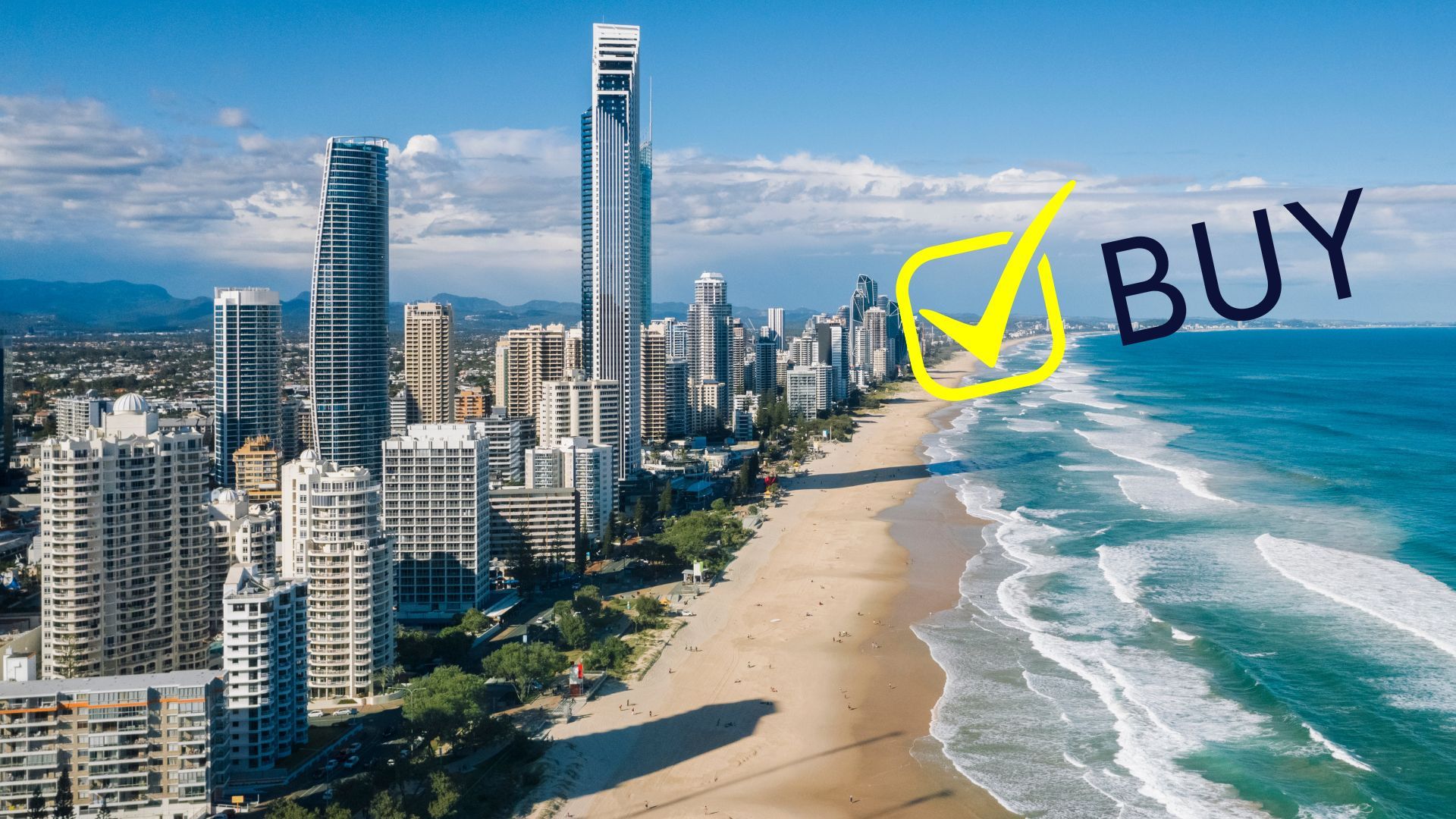FTBs of Australia – time to start buying and stop crying

It’s a constant concern for all ages now – will first time buyers be able to acquire a home this year and into the future?
We know for sure the government is falling behind on the 1,200,000 dwellings target, but as a buyers agent helping people buy at all budget levels, I don’t believe first time buyers have it as tough as the media makes out.
I was recently interviewed for a story about the ability to buy property at the lower end of Sydney’s median price.
What intrigued me was the reporter wouldn’t consider discussing anything but houses. She had a particular brief for the story she was writing, but it’s the complaint my team and I hear over and over – usually starting with the question ‘how will I ever save up enough of a deposit to buy in Sydney / anywhere’.
Media stories everywhere
First time buyers aren’t responsible for this line of thinking – the media makes the property market out to be impossible to enter.
Take a look at the following two examples. The first one is from a ‘finance’ specialist for Channel Nine. This story played on the angle around the annual salary you will need to purchase a house in each Australian capital city.
But . . this is just dramatizing the median prices – it says nothing about the fact there’s 658 suburbs within ‘Sydney’ and many of those are well below the median. Yes – some suburbs are more expensive but there’s more cost effective suburbs than there are pricey ones. The point is the media will only hype the scary story.

Next we have the Gen Z example of alarmist and – quite frankly biased – ‘reporting’ of how difficult things are for Gen Z and how ‘the Government’ needs to spend billions to sort not only housing but also add more transport.
This ‘reporter’ from the Sydney Morning Herald (SMH) outlined in not only her SMH story but also a video how ‘hard’ it was to use public transport in Sydney. During the video she didn’t quite clarify her point, but stated it took her 1 hour and 36 minutes to travel from North Sydney to Bossley Park.
Um . . was she trying to make the point that if you lived in North Sydney you would have to spend quite considerable time travelling to work? A weird approach because the trip from North Sydney (which has plenty of jobs – I worked there for four years) to Sydney CBD is around 10 minutes by train. So . . she couldn’t get a job in the city?
Even worse though . . this reporter moaned on about how ‘the Government’ had left many suburbs without a heavy rail link – there’s buses but no rail. However, only a few kilometres away is the new international airport, the new heavy rail and the new Bradfield City with roughly 20,000 jobs and around 10,000 in new dwellings.
You can see the locations on the map – the smallest red circle is North Sydney, the second smallest circle is Bossley Park and the large circle is the airport and location of the new city.

The practical approach
The real story for first time buyers across Australia is that buying isn’t easy, but it isn’t impossible and nearly all first time buyers have had to adapt in order to achieve their goals.
I grew up in Sydney but when it was time to move out of home, my friends and I couldn’t afford to buy near where we grew up. We all did completely different things in order to buy our first properties.
- Buck and Garry bought a crappy (scary) unit further out of the area where we grew up, then we all had to pitch in to paint it, fix it and help them make it livable.
- Belinda and Shayne – moved to Moruya on the NSW south coast and helped establish that community.
- Some moved overseas – just for a couple of months and ended up staying there.
- Some bought property with their siblings.
- Sarah put funds into converting her parents’ garage into a granny flat – she spent hours and hours optimising every inch of that little property. This included using the ceiling space for storage (doubled as insulation), making sure every piece of furniture had multiple uses, and purchasing the perfect size of plates, cups and canisters so not one inch of space was wasted.
- I did something completely different (of course) and moved to nearly every city in Australia before finally settling into Brisbane and buying my first property there – this was after years of sharing properties, living in weird one bedders, staying in boarding houses and actually moving between states without a car – I did it by travelling by bus (not for every move but for one at least).
The point is we all just got on with it. We worked the problem, found solutions and if the first thing turned out badly we tried again until things worked out. It changed the course of our lives.
Rather than running down a pre-determined pathway (which to be frank everyone starts out with) we were all diverted to a different future than the one we planned and in most cases it turned out great – not all the time but mostly.
Forge the future
People seem to have forgotten how Australia was established. Setting aside the trauma of the British invasion, large numbers of migrants moved here because they wanted a better life. They ‘moved away from home’ – a long way – and made a new life.
People also seem to forget most of our million dollar suburbs were downright shady at one time or another. Places like Balmain (NSW), Bulimba (Qld), Carlton (Vic), Fremantle (WA) . . all these places were literally dangerous places to live and over time the residents grew up, renovators moved in and the suburbs gentrified and became desirable.
I have lived in or near all those suburbs and have heard stories about the publicans having to break up fights, and hose out the pub floor after locals had a ‘difference of opinion’.
I’m not saying FTBs should look for locations with the highest crime rate possible. What I am saying is you might need to move into an ugly suburb before you move into the beautiful one, or before your tricky suburb becomes beautiful.
I remember that used to be the focus . . finding the next ‘trendy’ location. For Sydney residents – Paddington used to be ‘the end of the earth’ before the lawyers moved in to renovate it, and Newtown used to be a dust bowl before the creatives moved in.
Is it easy? Not as easy as sitting around complaining (though we’ve all done that along the way), but it wasn’t that hard either.
We all had to adjust and more often than not we ended up in better positions – changing jobs, establishing new support networks, developing skills (who knew I would LOVE to paint walls and hang wallpaper??).
Buy – Don’t Cry
FTBs of Australia . . it’s time to stop crying and start buying. Your counterparts are doing it. I help lots of FTBs buy property they can afford and get them moving into a secure future.
I definitely hear where you’re coming from but what are you expecting? That you’ll swan into a four bedroom, two bathroom property in Sydney two streets away from the train station with a 15 minute trip to work? You’re going to need to adapt – and there’s options – which I will get to shortly.
The first thing FTBs will need to do is learn to focus on ways to reach your target – which is tough when even the Australian Financial Review sprouts headlines like ‘you’ll never know your grandkids’. This headline was intended for the 45 + set, to get them worrying about how their children will ever leave home – so the worry escalates.

Of course, for some people not having easy access to the grandkids is a great thing – for the grandkids and the grandparents – not all families get along. But there’s millions of people who live in one country and travel back home for the holidays. Most of them are happy! Oh wait . . the media doesn’t like those types of headlines . . so you’ll never hear that story in the main outlets – particularly when it comes to housing.
Opportunities now
I absolutely agree we should be providing more social housing, and building more diversity into our cities and suburbs, so people have a choice and can afford to live closer to the main job hubs.
But FTBs need to get out of their own way, use the opportunities they have right in front of them right now, and play their own part in addressing their housing situation. And many FTBs are doing exactly that.
The FTBs I know aren't waiting around. They're jumping on opportunities to purchase something other than a big house as their first property, but clearly not all FTBs are like that.
The truth is there has never been such a broad amount of assistance for people to purchase a home, and the current FTB generation has so much opportunity to control their future.
In my day ( you know ten years ago 😎 ) – you couldn’t become a millionaire online as easily as you can now; you couldn’t work in one location and live in another; you couldn’t talk endlessly to your best friend who’s currently working in London because it was too expensive to do anything more than send a few texts.
And you definitely couldn’t have someone from nearly every country attend a birthday party you’re physically hosting in Toowoomba, but where they can all participate in the party and see each other.
Yes it’s expensive to buy a $2M house as your first purchase. So don’t do it! There’s plenty of locations where you can buy a property for less than $500,000. And by looking at dwelling diversity (units, duplexes, townhouses) FTBs can even purchase in any capital city.
Of course, the alternative is to buy something even less expensive than $500,000 . . find and build the new Byron Bay so you can own your home sooner, meet new people and – ideally – lower your stress levels.
The other great news is by using the range of financial assistance on offer you can enter the market without having to save a full 20% deposit – there are now so many grants and exemptions you’ll need to talk to a specialist to ensure you access the best option, but forget having to wait on the sidelines ‘for the market to get better’.
Get moving now
FTBs of Australia – it’s time for you to buy, not cry in 2025. I want you to be successful. More successful than any generation before you. All of Australia needs you to be successful. After all, your taxes will be paying our benefits long into the future 😲.
If you want some help, let me know – it’s time for you get moving. Check out our Buyer Success Program for access to the new DIY way to buy property without stuffing up.
About the Author
Debra Beck-Mewing is the CEO of The Property Frontline and Editor of Property Portfolio Magazine. With over 20 years of experience buying property across Australia, Debra is a skilled property strategist and buyers agent known for uncovering tailored opportunities — from family homes to multi-use investments.
She has deep expertise in advanced strategies including renovations, granny flats, sub-division, and development. A Qualified Property Investment Advisor (QPIA®), licensed real estate agent, and holder of a Bachelor of Commerce and Master of Business, Debra combines strategic insight with hands-on experience.
Debra is the creator of the Buyer Success Program™ – Australia’s only interactive, in-the-moment support system for property buyers, designed to help everyday Australians cut through the chaos and buy with confidence. She also leads Buy Like A Genius™, a premium end-to-end buyers’ agency service for busy professionals seeking expert property acquisition without the stress.
As a passionate advocate for greater transparency in the property and wealth industries, Debra is a sought-after speaker, author, podcast host, and participates on numerous committees including the Property Owners’ Association.
Download your guide
Start Buying - Stop Crying
There’s plenty of opportunities if you’re trying to buy a property in the current market, and the news gets better if you qualify for financial assistance packages.
DON'T GUESS, STRESS OR OVERPAY
Learn how to turn the market in your favour no matter where it heads next, by using the tips included in our guide.
We hate SPAM. We will never sell your information, for any reason.











